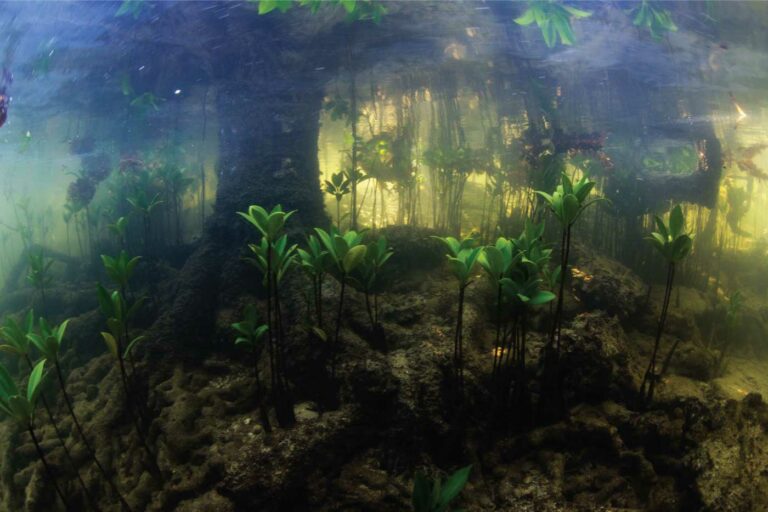New research has provided the first estimates of the carbon stored in Madagascar’s mangrove forests. The study, which assessed both above- and below-ground carbon stocks, supports the growing body of evidence showing that mangroves are amongst the most carbon-rich forests on earth.
The world’s only marine forest ecosystem, mangroves contain up to 12 times more carbon than undisturbed Amazonian rainforests, meaning that their conservation is vital for mitigating dangerous climate change.
Mangroves are found in more than 120 countries throughout the tropics, and provide critical resources to coastal communities, from fishing to coastal protection, as well as supporting rich marine biodiversity. Despite their enormous value, as much as half of the world’s mangrove forests have been lost since 1960, with an estimated ongoing deforestation rate of 1-2% a year.
The research, carried out by scientists from Blue Ventures and the University of Antananarivo’s Department of Forestry (ESSA-Forêts), assessed carbon stocks and quantified long-term changes in mangrove forest cover.[tweetable]The study highlighted Madagascar’s northwestern Ambanja and Ambaro bays as hotspots of deforestation[/tweetable], with more than 20% of the region’s mangroves being lost between 1990 and 2010.
Driven by poverty in a country where 92% of the population live on less than two dollars per day,[tweetable]forest cutting for charcoal production is the main cause of mangrove loss[/tweetable], threatening the livelihoods of Madagascar’s coastal communities as well as endangering the unique biodiversity of these critical ecosystems.
“Our socioeconomic research shows that the main driver of mangrove loss in Madagascar’s northwest is exploitation for charcoal production by local communities.” said Dr Harifidy Rakoto Ratsimba, researcher at the University of Antananarivo and co-author of the study.[tweetable]This research is not just ‘science for science’ but also shows evidence of the link between mangroves and livelihoods.[/tweetable]This will help us to implement conservation initiatives not just for the forest but also for people.
The paper, ‘Ecological variability and carbon stock estimates of mangrove ecosystems in Northwestern, Madagascar’ can be found here.
Notes for editors:
Blue Ventures is transforming how coastal communities in Madagascar relate to their marine environment by catalysing a sea change in sustainable fisheries management; undertaking pioneering research in blue carbon science, nurturing lucrative aquaculture businesses, and creating some of the largest locally managed marine protected areas in the Indian Ocean.
ESSA-Forêts is one of five departments attached to the School of Agricultural Sciences, University of Antananarivo. ESSA-Forêts undertakes research oriented towards the management of natural resources (including forest and water).
For more information about Blue Ventures’ pioneering blue carbon research, please contact Dr Trevor Jones: trevor[at]blueventures.org.























